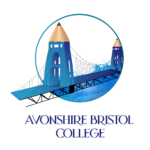Early childhood Montessori diploma
The Primary Montessori diploma program is a teacher-training course designed to prepare educators to work with children aged 3-6 years in a Montessori classroom. The program typically consists of both academic coursework and practical training, including supervised classroom observations, practice teaching, and student teaching.
The focus of the Primary Montessori diploma program is on understanding child development, creating a prepared environment, and developing effective teaching strategies that align with the Montessori philosophy. Students in the program learn about the various areas of the Montessori curriculum, which include practical life, sensorial, language, mathematics, and cultural studies.
The program also emphasizes the importance of observation and documentation, as these are key tools for assessing children’s progress and tailoring instruction to meet their individual needs. Teachers in Montessori classrooms are trained to observe children’s interests, needs, and abilities, and to use this information to guide their instruction and create individualized learning plans.
Overall, the Primary Montessori diploma program provides educators with the knowledge and skills they need to create a nurturing and stimulating learning environment that supports children’s growth and development during this critical stage of their lives.
Modules
The specific modules included in a Primary Montessori diploma program may vary depending on the institution offering the course. However, typical modules included in a Primary Montessori diploma program may include:
- Montessori philosophy and theory: This module focuses on the life and work of Maria Montessori, her educational philosophy, and the principles that underpin the Montessori method.
- Child development: This module covers the stages of child development, including cognitive, social, emotional, and physical development. It also explores the implications of these stages for the design of the Montessori environment and curriculum.
- Practical life: This module covers activities that promote the development of practical life skills, such as care of self and the environment, including activities such as pouring, sweeping, and washing.
- Sensorial: This module covers activities that promote the development of the senses, such as exploring different textures, shapes, and colors.
- Language: This module covers the development of language skills, including reading, writing, and spoken language.
- Mathematics: This module covers the development of mathematical concepts, including numeration, operations, and geometry.
- Cultural studies: This module covers various topics related to culture, such as geography, history, and science.
- Observation and assessment: This module covers the principles and techniques of observation and assessment in Montessori classrooms, including the use of checklists, anecdotal records, and other methods.
- Classroom management: This module covers strategies for creating a positive, productive classroom environment, including techniques for managing behavior and promoting social-emotional development.
- Practicum: This module involves supervised practice teaching in a Montessori classroom, allowing students to apply what they have learned in a real-world setting.
